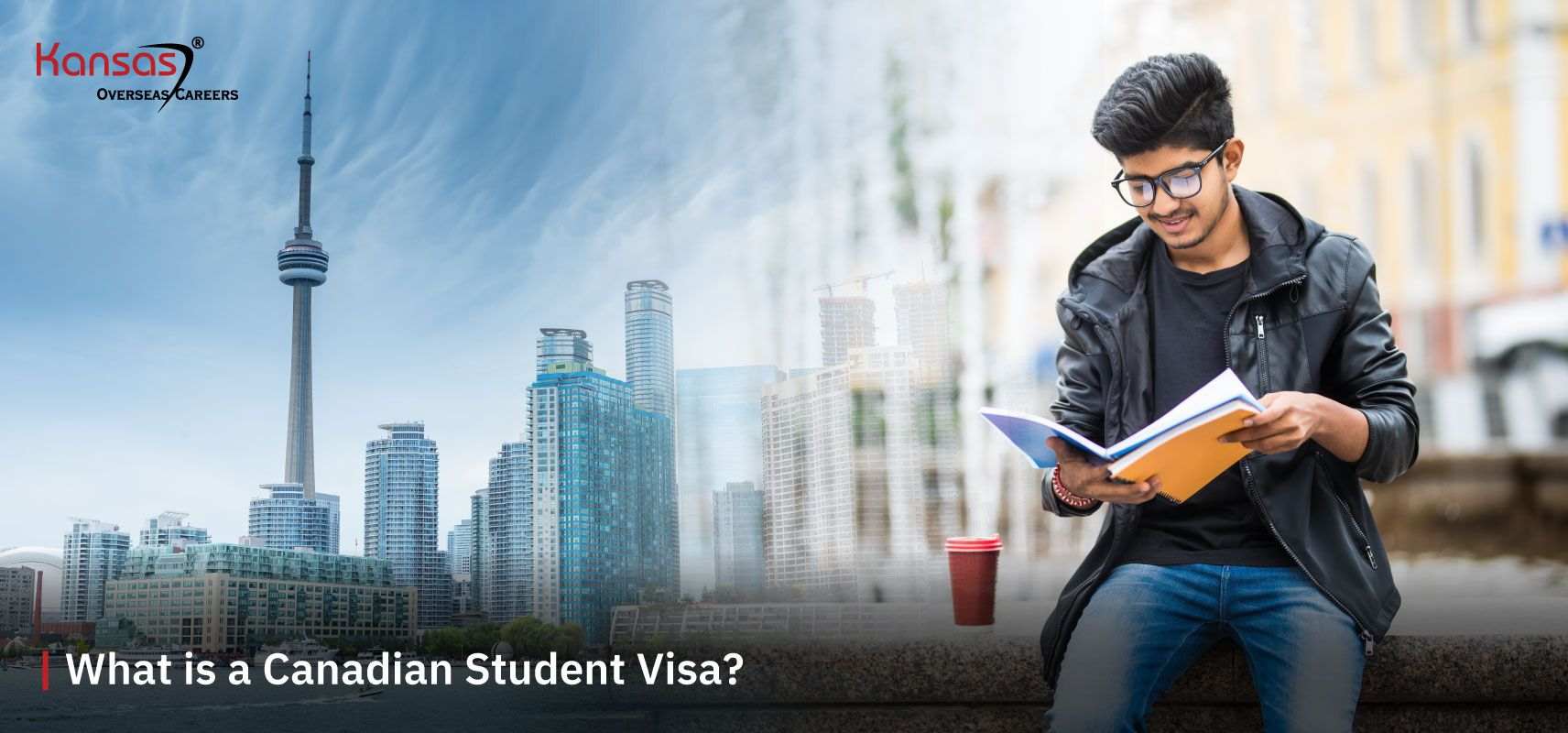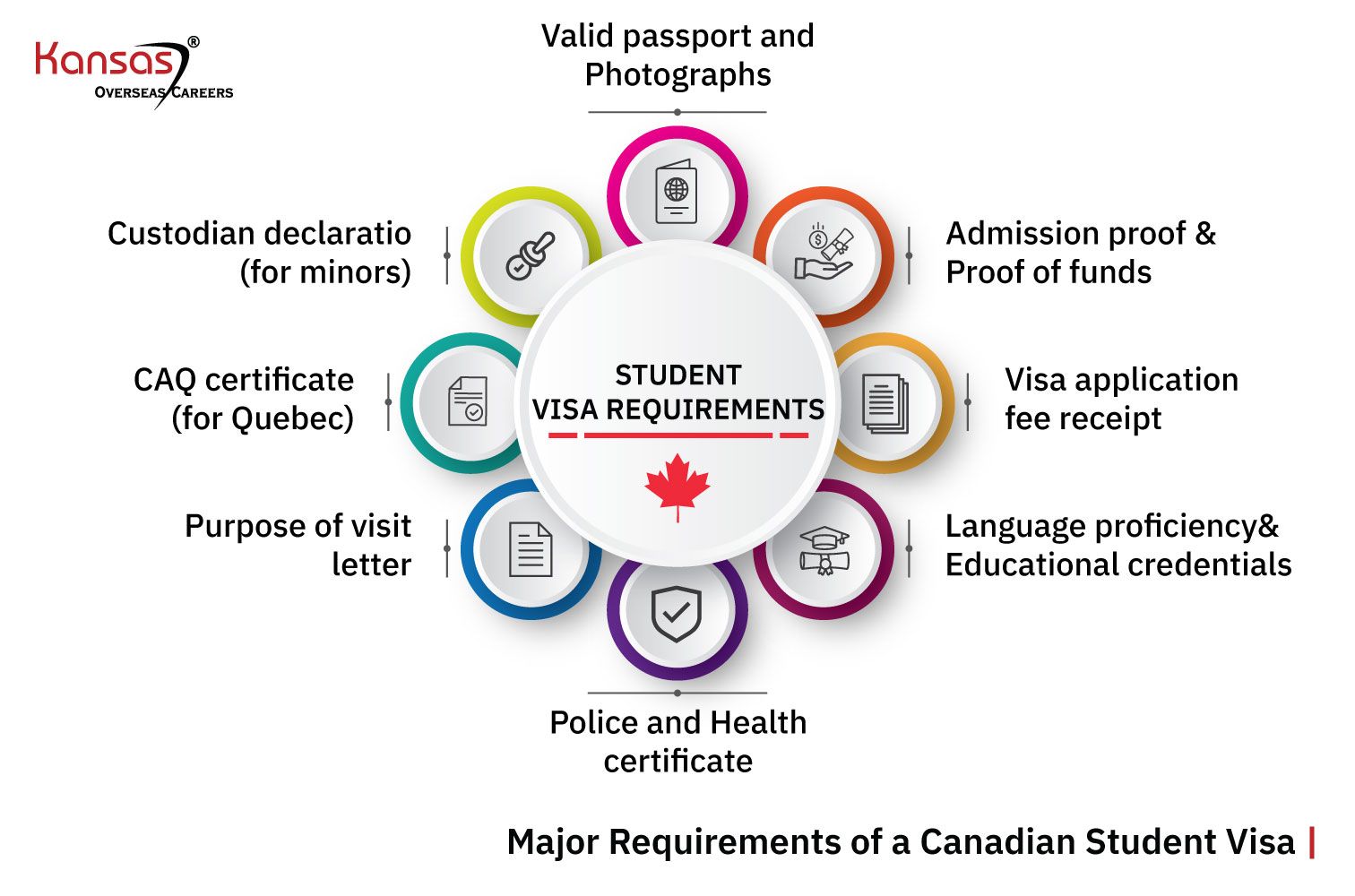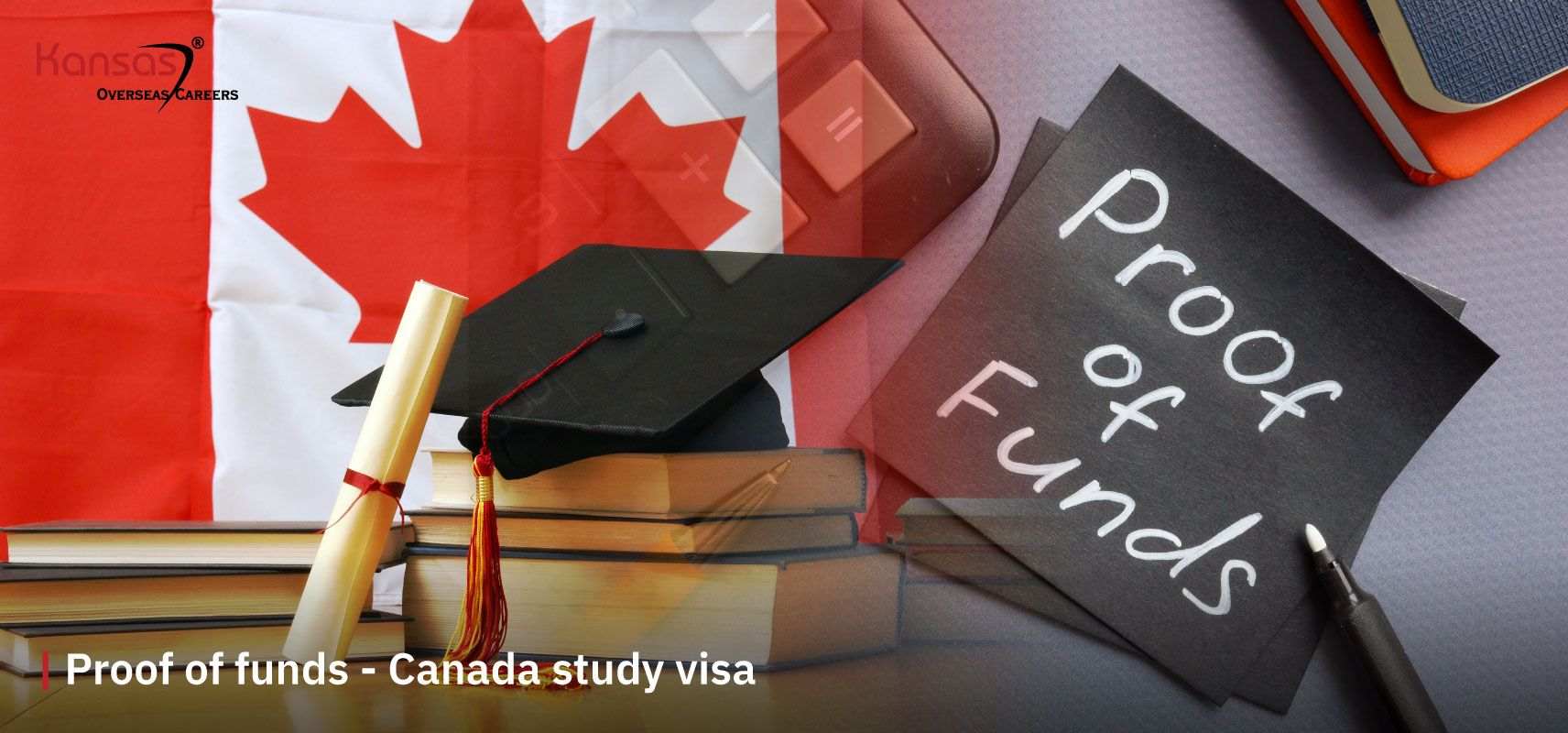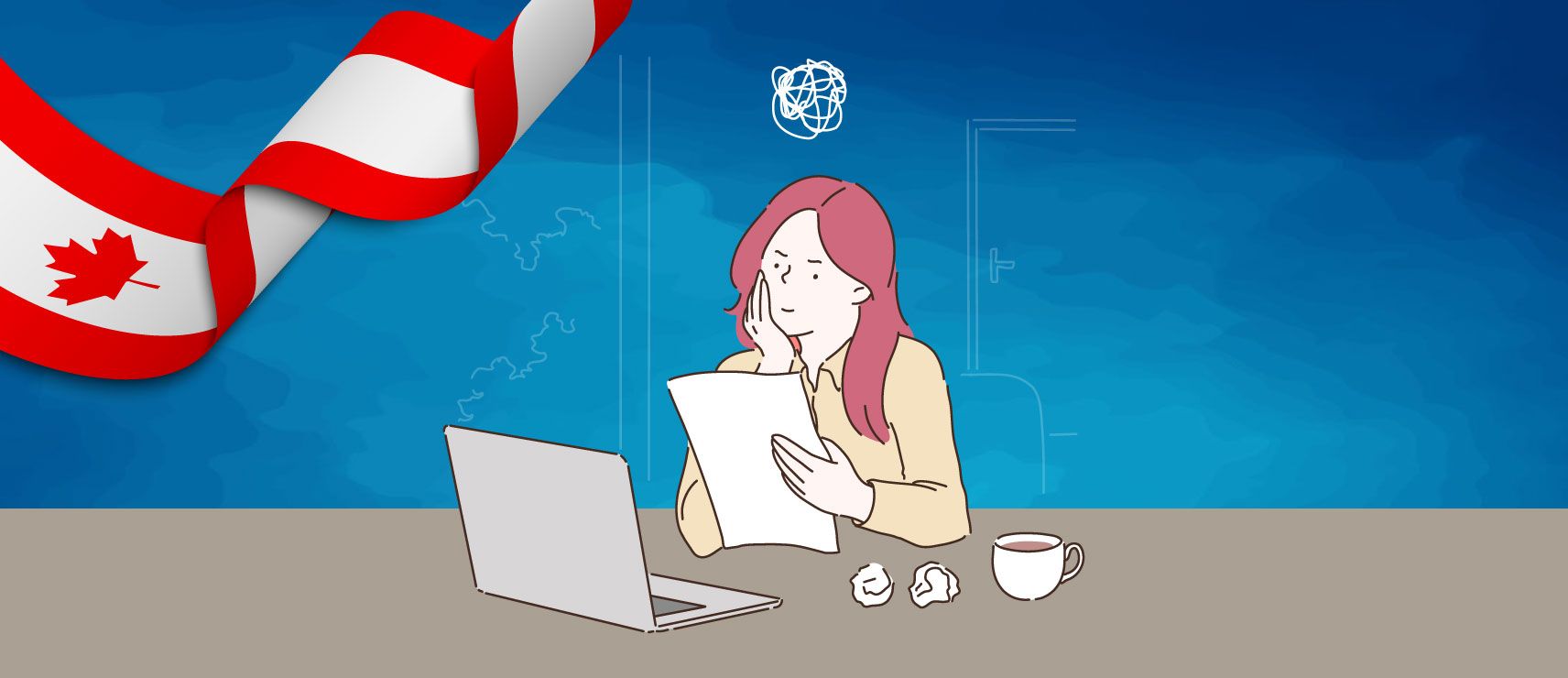Studying abroad is an exciting experience but it can also be a stressful one. It’s important to know what you need in order to get the right study permit for Canada.The requirements for a study visa in Canada can be very confusing and there is a lot of misinformation out there.
There are many people who have been denied visas to study in Canada because they didn’t meet the requirements. To help you avoid this, we made an entire guide on how to get your Canadian study permit approved!
What is a Canadian Student Visa?

A study permit is a document issued by the IRCC (Immigration, Refugees, and Citizenship Canada) that allows foreign nationals to study at any DLI (Designated Learning Institute) in Canada.
A Designated Learning Institution (DLI) is a school that has been approved by the Canadian Government or a provincial/territorial government to host international students.
By default, all primary and secondary schools in Canada are Designated Learning Institutions for each province or territory in Canada.
What are the Major Requirements of a Canadian Student Visa?

The major requirements of a Canadian student visa can be categorized into 2 parts –
- Eligibility requirements
- Admissibility documents
Basic eligibility requirements
To be eligible for studying in Canada, international students must:
- Be enrolled at a DLI (Designated Learning Institution)
- Declare financial status to prove that you have enough money to pay for -
- Tuition fees
- Living expenses for yourself
- Living expenses for your dependant family members (if any)
- Departure expenses for you and your dependants (if any)
- Prove to a Canadian immigration officer that you will leave Canada upon the expiry of your student visa.
Recommended
Admissibility documents
After passing the basic eligibility requirements you must provide legal documents to prove admissibility.
- Valid passport or travel document
All foreign nationals wanting to study in Canada must obtain a valid passport or a travel document like the eTA (Electronic Travel Authorization) before applying.
If you are applying online then you must upload a copy of the information page on your passport.
If you are a US citizen then you don’t necessarily have a passport. You can apply for an eTA.
- Photographs
You and your dependant family members (if any) must provide two passport size photographs with your application.
Here are the general guidelines for photographs:
- It should be the latest digital photographs, not older than six months
- It should have your name and date at the back
- The digital photographs must not be altered
- It can be either a black & white or a colour photograph
- It should be in a solid, plain white or a light-coloured background
- It should be 35 × 45 mm in size
- It should show your full face (religious head covers are allowed, provided, they do no cover your face)
- Admission proof
If you secure an admission in any of the DLI’s (Designated Learning Institution) then you will receive a letter of acceptance from the particular institute.
You must attach this letter of acceptance to your application.
- Proof of funds
You must prove that you can financially support yourself and your dependant family members (if any) in Canada.
To prove your financial status you can make use of the following –

- Your Canadian bank account (if you have transferred money to Canada)
- GIC (Guaranteed Investment Certificate) from a participating Canadian financial institution.
- A student loan or education loan proof from a bank
- Bank statements dating back to 4 months from the application date
- A demand draft from a bank convertible to Canadian dollars
- Tuition fees receipts
- Housing fees proof
- Letter from your sponsors lending you money
- Proof of funding from Canada, such as:-
- Scholarship received for the study program
- Study program funded by the Canadian Government
- Visa application fee receipt
You must attach the fee receipt generated after paying the application fees for the Canada student visa.
- Language proficiency test results
A language proficiency test is compulsory for a study permit in Canada. You must attach your IELTS test results along with your application form.
The minimum IELTS score required for a Canadian visa for an undergraduate study program is 6.0 per band, which is CLB level 7. For a postgraduate study program, you require a minimum of 6.5 in each band.
Here’s the breakdown of the points structure of an IELTS test:
|
IELTS test |
Basic |
Basic+ |
Okay |
Good |
Better |
Best |
|
Listening |
4.5-5 |
5.5 |
6-7 |
7.5 |
8 |
8.5-9 |
|
Reading |
3.5-4 |
5 |
6 |
6.5 |
7 |
8-9 |
|
Writing |
4-5 |
5.5 |
6 |
6.5 |
7 |
7.5-9 |
|
Speaking |
4-5 |
5.5 |
6 |
6.5 |
7 |
7.5-9 |
Please note that you must have passed the English language test before applying. If not English then you can select French because both are Canada’s official languages.
- Educational credentials
You must attach a copy of your most recent diploma/degree mark sheets and certificates.
If you hold any other diploma/degrees then you must attach certificates for the same.
- Police certificate
You must prove that you don’t have a criminal record against your name and that you are a law-abiding citizen.
To prove this you must get a certificate from your nearest local police station.
- Health certificate
You must undergo a medical examination to prove that you –
- Are in good health
- Do not carry any diseases
This health test is conducted by a panel of physicians approved by the IRCC (Immigration, Refugees, and Citizenship Canada)
You can take this heath test in your region, territory, or country. Please note that it is the IRCC who makes the final decision and not the panel physicians.
- Purpose of visit letter
You must write and include a letter to the visa officer explaining:
- The reason to choose Canada for studying
- That you know your responsibilities and will obey the laws
Please note that this is a mandatory letter and you must include it in your application even if your study program doesn’t require a valid study permit.
- CAQ certificate (for Quebec)
The CAQ (certificat d’acceptation du Québec) is an acceptance certificate issued by the Government of Quebec.
It is given to those applicants who are applying in the Quebec province in Canada.
- Custodian declaration (for minors)
The Custodianship Declaration form is necessary if your minor child is:
- Applying for a study permit in Canada
- Requires a custodian in Canada
This form has 2 pages which must be certified by a notary:
- First page: To be signed by the custodian
- Second page: To be signed by the parents/legal guardians
Your visa application form is complete only when you have provided all the necessary documents and paid the application fees. You can then proceed to submit your application.
Please note that documentation is a complicated task. Visit the nearest visa application centre or talk to our experts at Kansas and get proper guidance.
What are the Requirements of Canada Student Direct Stream Permit?
To be eligible to apply under the Student Direct Stream in Canadian you must:
- Be a legal citizen of any of the following countries: China, India, Morocco, Pakistan, Philippines, Senegal and Vietnam
- Hold an admission letter from a post-secondary DLI (Designated Learning Institution)
- Be living outside of Canada while applying
- Provide proof for payment of tuition fees for the first year of study
- Hold a GIC (Guaranteed Investment Certificate) of CAD 10,000
- Hold a CAQ (certificat d’acceptation du Québec) if you are applying in Quebec.
- Attach a Police certificate to prove that you don’t have any criminal record
- Attach a Health certificate to prove that you don’t carry any diseases.
- Provide recent secondary or post-secondary school transcripts
- Attach your IELTS test results with a score of 6.0 or more in each band or,
- Attach your TES (d’évaluation de français) test results with a CLB score of 7.0 or more in each band
Apart from all these documents, you might require more documents depending on your profile.
What are the requirements to work with a Study Permit in Canada?
Yes, you can work in Canada if you hold a study permit.
There are 3 types of employment options available:
1. Work on-campus
Foreign students are allowed to work at all the buildings in an institute campus.
If your institute has multiple campuses then you can work only at the campus on which you study. You don’t need a work permit to work on-campus.
You are allowed to work on your college/university campus if:
- Your study program has started
- You hold a valid study permit
- Your study permit conditions state that you can work
- You have enrolled in a full-time course at a DLI (Designated Learning Institution)
- You have a SIN (Social Insurance Number)
You cannot work on-campus if:
- Your study course hasn’t begun
- You stop pursuing the full-time course you are enrolled in
- Your study permit expires
- You are on an authorized leave
- You are changing your institution and aren’t studying currently
2. Work off-campus
You can work off-campus as an international student without a work permit.
- You can work for up to 20 hours per week during regular college.
- You can work full-time during holidays.
You are allowed to work off-campus if:
- Your study program has started
- You hold a valid study permit
- Your study permit conditions state that you can work
- You have enrolled in a full-time course at a DLI (Designated Learning Institution)
- You have enrolled in a study program that:
- Is of six months duration or more
- Culminates into a degree, diploma, or certificate.
- You have a SIN (Social Insurance Number)
You cannot work off-campus without a work permit if:
- Your study permit conditions state that you cannot work off-campus
- You are only enrolled in an English or French second language program (ESL/FSL)
- You are only enrolled in general interest courses
- You are enrolled in pre-requisite courses
- Your study course hasn’t begun
- You stop pursuing the full-time course you are enrolled in
- Your study permit expires
- You are on an authorized leave
- You are changing your institution and aren’t studying currently
3. Co-op or Internship
You can apply for a work permit to work as a Co-op or Intern if:
- You have a valid study permit in Canada
- Gaining work experience is a part of your study program’s curriculum
- Work experience is compulsory for completing your study course
- Your institute issues a letter stating that work experience is compulsory to get a degree
- Your placement as a Co-op or Intern constitutes 50% or less of your study program
You cannot work as a Co-op or Intern if:
- You are only enrolled in an English or French second language program (ESL/FSL)
- You are only enrolled in general interest courses
- You are enrolled in pre-requisite courses
Can International Students get PR in Canada?
The study permit coupled with the visitor visa only gives you a temporary resident status in Canada.
But, international students can shift from temporary to permanent resident status in Canada if they fulfill the necessary criteria.
If you fulfill all criteria, you can fit into many PR categories like:
- Canadian Experience Class
- Federal Skilled Worker Program
- PNP (Provincial Nominee Program)
International students have an added advantage while applying for a PR status in Canada because:
- Canadian immigration is based on a points system
- You get up to 600 points in the CRS (Comprehensive Ranking System) if you hold a degree, diploma, or certificate from Canada
- You get up to 600 points in the CRS if you have work experience in Canada
And you could get the work experience points easily through the following 4 employment options:
- Work on-campus
- Work off-campus
- Co-op or Internship
- PGWP (Post-graduation work permit) program
Who can apply for a Post-Graduation Work Permit?
You can apply for a post-graduate work permit if:
- You have a valid study permit
- You have a valid visitor record
- You have completed a study program:
- At a DLI (Designated Learning Institution)
- Of 8 months duration or more
- That culminated into a degree, diploma, or certificate
- You have studied full-time in all semesters of your study program, exceptions being:
- The final semester, which can be part-time
- You are on an authorized leave
What is the cost of a Canadian Student Visa?
The processing fee of a Canadian student visa is CAD 150.
The application fee of a Student Direct Stream in Canada starts from CAD 150.
Funds Required for a Canada Student Visa
Here’s a breakdown of the funds you require to study in Canada, and also funds for each family member (if any) accompanying you:
|
In Quebec |
||
|
Type of applicant |
Cost (per year) |
Cost (per month) |
|
Study Permit Applicant |
CAD 11,000 |
CAD 917 |
|
First Family Member (18 & above) |
CAD 5100 |
CAD 425 |
|
First family member (below 18) |
CAD 3800 |
CAD 317 |
|
Every additional family member (18 & above) |
CAD 5125 |
CAD 427 |
|
Every additional family member (under 18) |
CAD 1903 |
CAD 159 |
|
Outside Quebec |
||
|
Type of applicant |
Cost (per year) |
Cost (per month) |
|
Study permit applicant |
CAD 10,000 |
CAD 833 |
|
First family member |
CAD 4000 |
CAD 333 |
|
Every additional family member |
CAD 3000 |
CAD 255 |
Note: All the figures mentioned above are in addition to the tuition fees
Other Important FAQs
Do all study programs require a study permit in Canada?
Even though a study permit is compulsory for most study programs in Canada, there are certain exceptions. They are as follows:
- Short-term courses
- Family members of foreign representatives
- Foreign armed forces
- Registered Indians
- Foreign minors
Is A Canadian Student Visa Easy to Get?
Securing admission in a DLI (Designated Learning Institution) might seem that it will be easy to get the Canada Study visa.
But, according to the IRCC (Immigration, Refugees and Citizenship Canada), around 30% of all the study permit applications in Canada are refused every year.
Get the best guidance from our experts at Kansas to make your Canada Student visa application successful.
What is the Validity Period of a Canadian Student Visa?
The validity period of your student permit in Canada is the same as the length of the course you have enrolled for.
But, you get 90 days extra after the completion of your study program. This 90-days period is for your departure preparation or extension of stay.
Is there any age limit for a Canada Student Visa?
No. There is no age limit to apply for a study visa in Canada. But, you must fulfill all the eligibility requirements irrespective of your age.
Do I need a separate visa even if I hold a student visa in Canada?
Yes. The study permit itself is not a travel visa in Canada. It only allows you to study in Canada, and not to travel.
You will need either a visitor visa, also known as a temporary resident visa (TRV), or an eTA (Electronic Travel Authorization) to travel in and out of Canada. When your study permit is approved you will also receive a travel visa.
Can I bring my spouse and children with my student visa?
Yes, the IRCC (Immigration, Refugees and Citizenship Canada) allows you to bring your family members with you if you hold a study permit in Canada.
What is a Post-Graduation Work Permit?
A post-graduation work permit (PGWP) allows you to:
- Stay in Canada after you graduate, and
- Work full-time for up to 3 years
- Work in various fields, and not any specific one
Who cannot apply for a Post-Graduation Work Permit?
You cannot apply for a PGWP if:
- You have received a PGWP before
- You are only enrolled in an English or French second language program (ESL/FSL)
- You are only enrolled in general interest courses
- You were studying in a non-Canadian educational institution in Canada
You must apply for a PGWP within 180 days of receiving your final mark sheet. The cost of a PGWP is CAD 255.
What are the New Rules for Canada Study Visa?
The IRCC (Immigration, Refugees and Citizenship Canada) has announced new measures for international students to start studying online from outside Canada.
These new rules apply to those students who:
- Have applied for this fall semester
- Have submitted their study permit application before 15th September 2020
According to the new measures international students:
- Can start their study program online from outside Canada
- Can complete up to 50% of their study program online from outside Canada
- Are eligible to apply for a PGWP (Post-Graduate Work Permit) even after graduating in such a manner
- Can also include the time spent from submission to approval, rather than only from approval, of their study permit application to future PGWP application.
Your study permit must be approved by the IRCC to avail of these new benefits.
Does everyone require a passport to Travel to Canada for Studying?
All foreign nationals wanting to study in Canada must obtain a valid passport, except for citizens of visa-exempt countries.
Citizens of visa-exempt countries can instead provide a valid travel document like the eTA (Electronic Travel Authorization) if they are travelling by air.
These citizens do not need an eTA if they are travelling by any other modes of transport, such as bus, train, boat, or a cruise ship.
The eTA is linked to your passport and is valid for up to 5 years or until your study course ends.
Do I need a Study Visa for a Short Term Course in Canada?
If your study program is of 6 months duration or less then you don’t require a study permit. But, if you are enrolling for a prerequisite course of any duration, you must get a study permit.
I am an Indian Student in Canada. Do I Require a Study Permit?
If you have a Registered Indian status in Canada (even if you are a foreign national) then you don’t require a study permit.
What If I finish the course before my study permit expires?
If you finish your study course before the permit ends then starting from that day you will have 90 days for leaving Canada or extending your stay.
What if my study permit expires before finishing the course?
If you do not finish your course in the stipulated time then you must get an extension or you will be asked to leave Canada.
Can I study in Canada without IELTS?
IELTS is an English language proficiency test.
You can go to Canada to study without giving IELTS test if you:
- Have passed any other English language test like the TOEFL
- Have studied in an English medium school for four or more years
- Are a citizen of an English speaking country
- Have attended a universities’ language program for a semester or a year
If you fulfill any of the above criteria then you are eligible to study in Canada without IELTS.
Also, Canada recognizes two official languages, English and French. So, even if you are unable to prove language proficiency in English, you can always opt for French. You can also select both.
Conclusion
Main requirements for a Canada student visa include:
- An acceptance letter from a Designated Learning Institute (DLI)
- Sufficient Proof of funds for you and family members accompanying you toCanada
- A police clearance certificate proving you have no criminal history
- An Immigration Medical Examination (IME) to prove that you are in good health and have no infectious diseases that can pose a threat to the residents of Canada
- You must prove that your ties to your home country and that you intend to leave Canada after your education
- A negative Covid-19 test result to air travel to Canada
If you have any doubts regarding your Canada Study Visa application or the process involved, you can connect with one of our visa experts at Kansas Overseas.
They will guide you through every step of the process including your documents and application, admission essays (SOPs), and will also advise you on the best course of action so that you receive your visa in the fastest possible time frame.

-1.jpg)









